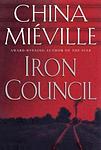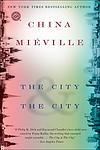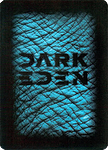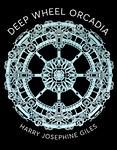Arthur C. Clarke Award
This is one of the 286 lists we use to generate our main The Greatest Books list.
-
The Handmaid's Tale by Margaret Atwood
Set in a dystopian future, this novel presents a society where women are stripped of their rights and are classified into various roles based on their fertility and societal status. The protagonist is a handmaid, a class of women used solely for their reproductive capabilities by the ruling class. The story is a chilling exploration of the extreme end of misogyny, where women are reduced to their biological functions, and a critique of religious fundamentalism.
-
The Sea And Summer by George Turner
"The Sea and Summer" by George Turner is a dystopian novel set in a future Australia where climate change and economic disparity have created a stark divide between the rich and the poor. The story follows the lives of two families, the Kents and the Coulters, as they struggle to survive in a decaying city plagued by extreme weather conditions and social unrest. As tensions rise and the gap between social classes widens, the characters must confront the harsh realities of their world and make difficult choices to ensure their survival.
-
The Child Garden by Geoff Ryman
"The Child Garden" by Geoff Ryman is a science fiction novel set in a future dystopian world where a deadly virus has devastated humanity. The story follows Milena, a genetically modified girl who possesses the ability to communicate with plants. As she navigates through a society controlled by a powerful corporation, Milena discovers the dark secrets behind her creation and embarks on a journey of self-discovery and rebellion. Blending elements of genetics, ecology, and social commentary, Ryman's novel explores themes of love, identity, and the consequences of tampering with nature.
-
The Fall of Hyperion by Dan Simmons
In this sequel to a science fiction saga, the story continues as a group of pilgrims trapped on the planet Hyperion face the looming threat of the Time Tombs, which are traveling backward through time. Meanwhile, the interstellar Hegemony they once belonged to is on the brink of war with the Ousters, a group of spacefaring barbarians. As the complex political machinations unfold, the pilgrims' personal tales intertwine with the fate of the universe, revealing their connections to the mysterious Shrike—a creature that may hold the key to humanity's salvation or its ultimate destruction. The narrative weaves together multiple timelines and perspectives, exploring themes of memory, destiny, and the nature of intelligence.
-
Take Back Plenty by Colin Greenland
"Take Back Plenty" by Colin Greenland is a science fiction novel set in a future where humanity has colonized other planets. The story follows the adventures of Tabitha Jute, a tough and resourceful spaceship pilot, as she embarks on a dangerous mission to retrieve a mysterious artifact from a distant planet. Along the way, she encounters strange alien species, navigates treacherous space battles, and unravels a conspiracy that threatens the entire human race. With its thrilling plot, vivid world-building, and complex characters, "Take Back Plenty" is a captivating exploration of adventure, love, and the limits of human ambition in the vastness of space.
-
Synners by Pat Cadigan
"Synners" by Pat Cadigan is a cyberpunk novel set in a near-future where virtual reality technology has become a part of everyday life. The story follows a group of individuals who become entangled in a dangerous conspiracy involving a new form of brain implant that allows people to directly experience the thoughts and emotions of others. As they navigate the complex world of virtual reality and the dark underbelly of the technology industry, the characters must confront their own fears and desires, ultimately questioning the nature of identity and the boundaries between human and machine.
-
Body Of Glass by Marge Piercy
"Body of Glass" by Marge Piercy is a dystopian novel set in a future where technology has advanced to the point where humans can upload their consciousness into artificial bodies. The story follows the life of a woman named Kassia, who is a "shaper" - an individual with the ability to shape and mold her body at will. As Kassia navigates a society obsessed with physical perfection and conformity, she becomes involved in a rebellion against the oppressive government, ultimately questioning the true meaning of identity, freedom, and what it means to be human.
-
Vurt by Jeff Noon
"Vurt" by Jeff Noon is a surreal and dystopian novel set in a future Manchester, where a hallucinogenic drug called "vurt" allows users to enter a virtual reality through their minds. The story follows Scribble, a young man who becomes obsessed with finding a rare and powerful vurt feather to save his sister, who is trapped in a vurt world. As Scribble navigates through a dangerous and bizarre landscape, he encounters strange creatures, alternate dimensions, and a mysterious group known as the Stash Riders. Blending elements of science fiction, cyberpunk, and urban fantasy, "Vurt" explores themes of addiction, identity, and the blurred lines between reality and fantasy.
-
Permutation City by Greg Egan
"Permutation City" by Greg Egan is a science fiction novel set in a future where people can create digital copies of themselves, known as "copies," and upload their consciousness into virtual reality. The story follows a computer scientist named Paul Durham who is obsessed with creating a perfect copy of himself. As he delves deeper into the possibilities of digital existence, he uncovers profound philosophical questions about identity, consciousness, and the nature of reality. Egan's thought-provoking narrative explores the ethical and existential implications of creating and living as digital beings.
-
Fairyland by Paul J. McAuley
In "Fairyland," readers are transported into a near-future Europe transformed by biotechnology and genetic engineering, where the boundaries between human and machine, reality and artificiality blur. The narrative follows Alex Sharkey, a scientist who becomes entangled with the creation of genetically engineered dolls that possess consciousness. As he navigates a landscape marked by corporate espionage, underground movements, and a quest for freedom, Sharkey's journey reveals the dark underbelly of technological advancement and its impact on society. This science fiction novel delves into themes of identity, autonomy, and the ethical implications of scientific progress, presenting a thought-provoking exploration of a future where the fantastical becomes possible.
-
The Calcutta Chromosome by Amitav Ghosh
"The Calcutta Chromosome" by Amitav Ghosh is a captivating science fiction novel that intertwines the stories of Antar, a computer programmer in New York, and Murugan, a former employee of the British Indian Medical Service in Calcutta. As Antar delves into the mysterious disappearance of Murugan, he becomes immersed in a complex web of history, science, and conspiracy. The book explores themes of time travel, medical research, and the pursuit of knowledge, taking readers on a thrilling journey through the streets of Calcutta and the depths of the human mind.
-
Dreaming In Smoke by Tricia Sullivan
"Dreaming In Smoke" by Tricia Sullivan is a science fiction novel set in a future where people can connect their minds to a virtual reality world called the Dreaming. The story follows a young woman named Mallory who becomes trapped in the Dreaming after her mother's death. As she navigates this virtual realm, she uncovers dark secrets and must confront her own fears and desires. With themes of identity, loss, and the power of dreams, Sullivan's novel explores the boundaries between reality and illusion in a captivating and thought-provoking way.
-
Distraction by Bruce Sterling
"Distraction" by Bruce Sterling is a science fiction novel set in a near-future America where political corruption, media manipulation, and technological advancements dominate society. The story follows Oscar Valparaiso, a political operative and entrepreneur, as he navigates the chaotic world of politics, corporate espionage, and personal relationships. As Oscar becomes entangled in a web of power struggles and conflicting interests, he must confront his own ambitions and decide where his loyalties truly lie. Through its vivid portrayal of a society on the brink of collapse, "Distraction" explores themes of identity, morality, and the impact of technology on human relationships.
-
Parable of the Talents by Octavia E. Butler
Set in a dystopian future America ravaged by climate change and societal collapse, the novel follows the journey of a young woman who, despite facing slavery, violence, and the rise of a dangerous religious zealot, strives to build a community based on her own new belief system, Earthseed. Her vision is to create a society that can adapt and thrive amidst chaos, with the ultimate goal of taking humanity to the stars. Throughout her struggle, she documents her experiences and philosophies in the hope that they will guide future generations towards a more hopeful, resilient future.
-
Bold As Love by Gwyneth Jones
"Bold As Love" by Gwyneth Jones is a science fiction novel set in a near-future Britain that has been ravaged by climate change and political unrest. The story follows a rock band called Bold As Love, led by charismatic and enigmatic Ax Preston, as they navigate through a post-apocalyptic world. With themes of love, revolution, and the power of music, the book explores the band's journey to bring hope and change to a society on the brink of collapse.
-
The Separation by Christopher Priest
"The Separation" by Christopher Priest is a thought-provoking novel that explores the concept of alternate histories. Set during and after World War II, it follows the lives of twin brothers, Joe and Jack Sawyer, who find themselves on different sides of the conflict. Through a series of intertwining narratives, the book delves into the consequences of their choices and the impact it has on their personal lives and the world at large. Blurring the lines between reality and fiction, the novel raises profound questions about identity, memory, and the nature of truth.
-
Quicksilver by Neal Stephenson
"Quicksilver" by Neal Stephenson is the first book in "The Baroque Cycle" trilogy, set in the late 17th and early 18th centuries. The story follows the life of Daniel Waterhouse, a member of the Royal Society, as he navigates through a world of scientific discoveries, political intrigue, and personal relationships. From the coffeehouses of London to the court of Louis XIV in Versailles, the novel weaves together historical events and fictional characters to create a sprawling epic that explores the birth of modern science and the clash between old and new worldviews.
-
Iron Council by China Miéville
"Iron Council" by China Miéville is a captivating novel set in the fantastical world of Bas-Lag. The story follows a group of rebels and outcasts who form the Iron Council, a revolutionary movement fighting against an oppressive regime. As they navigate through treacherous landscapes and encounter various creatures, the Iron Council seeks to overthrow the government and create a utopian society. The book explores themes of revolution, loyalty, and the power of collective action, offering a thrilling and thought-provoking journey through a richly imagined universe.
-
Air by Geoff Ryman
"Air" by Geoff Ryman is a thought-provoking science fiction novel set in a near-future world where a mysterious substance called "Air" has the power to connect people's minds and transform society. The story follows Mae, a young woman living in a small village in the fictional country of Karzistan, as she becomes a central figure in the global revolution sparked by the discovery of Air. As the world rapidly changes and traditional power structures are challenged, Mae must navigate the complexities of love, politics, and personal identity in a world where the boundaries between reality and virtuality blur.
-
Nova Swing by M. John Harrison
"Nova Swing" by M. John Harrison is a science fiction novel set in a future where interstellar travel is possible. The story follows a group of characters, including an ex-cop turned private detective, a woman searching for her missing husband, and a man who sells illegal alien artifacts. As they navigate a mysterious city called Saudade, they become entangled in a web of intrigue involving parallel dimensions, time travel, and the enigmatic phenomenon known as the "Nova Swing." With its atmospheric prose and complex plot, the book explores themes of identity, memory, and the blurred boundaries between reality and imagination.
-
Black Man by Richard Morgan
"Black Man" by Richard Morgan (also published as "Thirteen" in the United States) is a futuristic science fiction novel set in a world where genetically engineered humans, known as "variants," exist alongside regular humans. The story follows Carl Marsalis, a former variant soldier who is now working as a private investigator. As he gets caught up in a series of murders, Carl must confront his own troubled past while navigating a society that fears and discriminates against him. This gripping and thought-provoking novel explores themes of identity, prejudice, and the consequences of scientific advancements.
-
Song Of Time by Ian R. MacLeod
This novel is a poignant exploration of memory, music, and mortality, set in a near-future world facing the impacts of climate change and societal shifts. The story unfolds through the eyes of a celebrated classical violinist who, in her old age, discovers a mysterious young man washed ashore near her home. As she nurses him back to health, she reflects on her life, her loves, and the music that has been her constant companion, weaving a rich tapestry of personal and global history. The narrative delves into themes of loss, the enduring power of art, and the complex nature of human relationships, all set against a backdrop of a world on the brink of transformation.
-
The City & the City by China Miéville
In a unique blend of noir detective fiction and speculative fantasy, the book explores the coexistence of two distinct cities occupying the same geographical space, yet remaining invisible to each other due to a strict set of societal rules and the mysterious force of "Breach" that enforces them. When a young woman is found murdered, a seasoned inspector must navigate the complex and often perilous overlap of these two cities to solve the crime. His investigation challenges the rigid separation of the cities, uncovering a conspiracy that blurs the lines between the two and threatens the very fabric of their existence.
-
Zoo City by Lauren Beukes, Philibert-Caillat Laurent Beukes Lauren
"Zoo City" by Lauren Beukes is a gripping urban fantasy novel set in a gritty Johannesburg where people who have committed a crime are magically bonded with an animal familiar. The story follows Zinzi December, a former journalist with a sloth on her back, as she becomes embroiled in a dangerous mystery involving a missing pop star and a dark conspiracy that threatens her newfound stability. With its unique blend of crime, magic, and social commentary, "Zoo City" explores themes of redemption, identity, and the consequences of our actions in a captivating and thought-provoking way.
-
The Testament Of Jessie Lamb by Jane Rogers
"The Testament of Jessie Lamb" by Jane Rogers is a thought-provoking dystopian novel set in a world where a deadly virus threatens to wipe out humanity. Jessie Lamb, a sixteen-year-old girl, is determined to make a difference and save the future by volunteering for a controversial medical experiment that could potentially save the human race. As she navigates the ethical dilemmas and sacrifices that come with her decision, Jessie explores the complexities of love, sacrifice, and the value of life in a world on the brink of extinction.
-
Dark Eden by Chris Beckett
"Dark Eden" by Chris Beckett is a dystopian science fiction novel set on a planet called Eden, where a small group of humans have been stranded for generations. The descendants of the original survivors have developed their own unique culture and language, but their limited resources and lack of knowledge about the outside world create a constant struggle for survival. As the protagonist, John Redlantern, challenges the beliefs and traditions of his community, he embarks on a dangerous journey to find a way off the planet and discover the truth about their existence.
-
Ancillary Justice by Ann Leckie
The book is a science fiction novel that follows the story of Breq, who was once a powerful starship AI controlling many bodies, but is now trapped in a single human body and driven by a quest for vengeance. Set in a vast interstellar empire where ships and stations are inhabited by ancillary AIs, the narrative explores themes of identity, gender, and colonialism. Breq's journey intertwines with flashbacks to her past experiences as an AI, revealing her complex relationship with a former officer and the events that led to her current mission. As she navigates political intrigue and battles, Breq challenges the empire's rigid structures and seeks to address the injustices within it.
-
Station Eleven by Emily St John Mandel
"Station Eleven" is a post-apocalyptic novel that revolves around the lives of several characters before and after a devastating flu pandemic wipes out most of the world's population. The narrative jumps back and forth in time, exploring the interconnectedness of the characters' lives through their shared memories and experiences. The story also follows a traveling Shakespearean theatre company as they navigate the dangers of a collapsed civilization, emphasizing the importance of art and human connection in times of crisis.
-
Children Of Time by Adrian Tchaikovsky
"Children of Time" by Adrian Tchaikovsky is a science fiction novel that explores the evolution of two species, humans and spiders, on different planets. When Earth faces destruction, a group of humans embarks on a mission to terraform a new planet and create a new civilization. However, an experiment involving a virus meant to accelerate the evolution of monkeys goes wrong, leading to the unintended uplift of spiders. The story follows the parallel development of both species, highlighting their struggles, conflicts, and eventual convergence as they vie for dominance in a rapidly changing world.
-
The Underground Railroad by Colson Whitehead
This novel follows the journey of Cora, a young slave on a cotton plantation in Georgia, who escapes and embarks on a journey towards freedom via the Underground Railroad. The book presents a literal version of the historical Underground Railroad, portraying it as a physical network of tunnels and tracks beneath the Southern soil. As Cora travels from state to state, she encounters different worlds and harsh realities, each one illuminating the various forms of oppression Black people faced in America. The narrative is a brutal exploration of America's history of slavery and racism, and a testament to the unyielding spirit of those who fought against it.
-
Dreams Before The Start Of Time by Anne Charnock
"Dreams Before The Start Of Time" by Anne Charnock is a thought-provoking novel set in a future where reproductive technology has advanced to the point where people can choose the genetic makeup of their children. The story follows multiple characters across generations, exploring the ethical and emotional implications of these advancements on family dynamics, personal identity, and the nature of parenthood. Through its richly developed characters and intricate plot, the book raises questions about the role of technology in shaping our lives and the complex interplay between science and humanity.
-
Rosewater by Tade Thompson
"Rosewater" by Tade Thompson is a captivating science fiction novel set in a future Nigeria. The story follows Kaaro, a government agent with psychic abilities who works in the town of Rosewater, built around an alien biodome that heals and grants powers to those who enter it. As Kaaro navigates the complex world of telepathy, government conspiracies, and a mysterious alien presence, he becomes entangled in a dangerous plot that could change the fate of humanity. With its rich world-building and thought-provoking exploration of power and identity, "Rosewater" is a thrilling and immersive read.
-
The Old Drift by Namwali Serpell
"The Old Drift" by Namwali Serpell is a sweeping and ambitious novel that spans generations and continents, exploring the intertwined lives of three families in Zambia. Set against the backdrop of colonialism, technological advancements, and political upheaval, the story delves into themes of love, power, and identity. From the early days of the British settlers to the rise of an experimental town and the emergence of a new generation, Serpell weaves a rich tapestry of characters and narratives, offering a thought-provoking exploration of history, race, and the impact of human actions on the world.
-
The Animals In That Country by Laura Jean McKay
"The Animals In That Country" by Laura Jean McKay is a gripping and thought-provoking novel set in a near-future Australia. The story follows Jean, a foul-mouthed and alcoholic grandmother, who discovers she has the ability to understand the language of animals after contracting a mysterious virus. As a deadly pandemic spreads across the country, Jean embarks on a journey with a dingo named Sue to find her pregnant daughter and escape the chaos. McKay skillfully explores themes of communication, human-animal relationships, and the fragile nature of society, creating a compelling narrative that challenges our perception of the world around us.
-
Deep Wheel Orcadia by Harry Josephine Giles
"Deep Wheel Orcadia" by Harry Josephine Giles is a speculative fiction novel set in a future where climate change has ravaged the world. The story follows the protagonist, a young woman named Jo, as she navigates the post-apocalyptic landscape of Orcadia, a floating city made up of interconnected wheels. Jo becomes involved in a rebellion against the oppressive ruling class, discovering secrets about the city's history and her own identity along the way. Through themes of power, resistance, and personal growth, the novel explores the complexities of a society on the brink of collapse and the resilience of the human spirit.
Arthur C. Clarke Award, 36 Books
The Arthur C. Clarke Award is a British award given for the best science fiction novel first published in the United Kingdom during the previous year. It is named after British author Arthur C. Clarke, who gave a grant to establish the award in 1987. The book is chosen by a panel of judges from the British Science Fiction Association, the Science Fiction Foundation, and a third organisation, which as of 2019 is the Sci-Fi-London film festival. The award has been described as "the UK's most prestigious science fiction prize".
Added 9 months ago.
This list has a weight of 12%. To learn more about what this means please visit the Rankings page.
Here is a list of what is decreasing the importance of this list:
- List: only covers 1 year (yearly book awards, best of the year, etc)
- List: only covers 1 specific genre
If you think this is incorrect please e-mail us at [email protected].



















